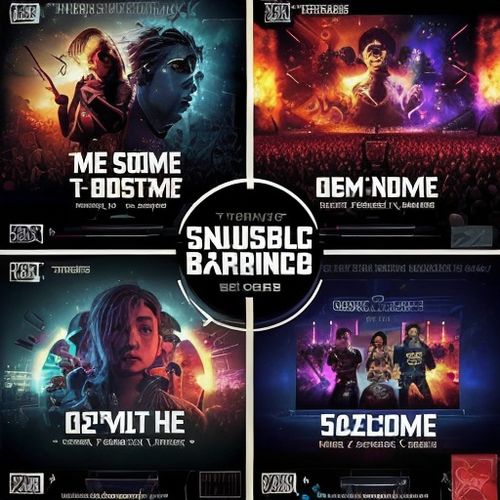The NFT music platform Royal has recently come under scrutiny for its controversial royalty-sharing model, raising questions about whether it truly benefits artists or merely repackages existing inequities in the music industry. Founded by electronic artist Justin Blau (3LAU), Royal markets itself as a revolutionary platform where fans can buy NFTs tied to songs and earn a share of streaming royalties. However, critics argue that the model may be more hype than substance, leaving artists and fans questioning its long-term viability.
At its core, Royal’s proposition is simple: artists can tokenize their music, selling fractions of their royalties to fans through NFTs. Supporters claim this democratizes music ownership, allowing fans to profit alongside their favorite musicians. Yet, industry analysts point out that the financial mechanics of these deals often favor the platform and early investors rather than the average fan or even the artist. The fine print in Royal’s contracts has become a sticking point, with some artists reporting that the revenue splits are less favorable than traditional label deals.
The platform’s most vocal critics include independent musicians who have experimented with Royal only to find the returns negligible. One indie artist, who requested anonymity, revealed that after selling royalty shares through Royal, their payout was a fraction of what they earned through Bandcamp or even Spotify. "It’s framed as empowerment, but unless you’re already a big name, the numbers don’t add up," they said. This sentiment echoes broader skepticism about whether NFT-based solutions address the systemic issues plaguing artist compensation.
Another concern is the speculative nature of Royal’s marketplace. Unlike traditional royalties, which generate income over time based on streams or sales, Royal’s NFT model relies heavily on secondary market trading. Fans purchasing these NFTs often do so hoping their value will appreciate, creating a dynamic closer to stock trading than music fandom. This has led to accusations that Royal prioritizes investor speculation over sustainable artist-fan relationships. "When the hype dies down, what’s left?" asked one industry insider. "If the NFTs stop trading, do the royalties dry up?"
Royal’s defenders, however, argue that the platform is still in its infancy and that its model will evolve. They point to high-profile partnerships with artists like Nas and The Chainsmokers as evidence of its potential. Yet, even these deals have faced scrutiny. When Nas released royalty NFTs through Royal, some fans were dismayed to learn that the shares represented a tiny sliver of his catalog, with payouts amounting to pennies unless the song became a massive hit. This has fueled doubts about whether the platform can scale in a way that benefits lesser-known artists.
The broader issue may be whether Royal’s vision aligns with the realities of the music business. While the idea of fans sharing in an artist’s success is appealing, the logistics of dividing royalties among thousands of NFT holders are complex. Traditional royalty systems are already convoluted, and adding blockchain layers could introduce more inefficiencies. Some worry that Royal’s model might inadvertently replicate the opacity of legacy systems, just with a crypto veneer.
Despite the criticism, Royal’s team remains optimistic. In a recent interview, Blau emphasized that the platform is iterating based on feedback and that its mission—to align artists and fans financially—is unchanged. Whether Royal can refine its model to live up to that promise remains to be seen. For now, the debate over its royalty-sharing structure underscores a larger conversation about how Web3 technologies can—or can’t—fix the music industry’s entrenched problems.

By Olivia Reed/Apr 13, 2025

By William Miller/Apr 13, 2025

By Amanda Phillips/Apr 13, 2025

By Megan Clark/Apr 13, 2025

By Joshua Howard/Apr 13, 2025

By Samuel Cooper/Apr 13, 2025

By Elizabeth Taylor/Apr 13, 2025

By Eric Ward/Apr 13, 2025

By Emma Thompson/Apr 13, 2025

By Noah Bell/Apr 13, 2025

By Sarah Davis/Apr 13, 2025

By Eric Ward/Apr 13, 2025

By Daniel Scott/Apr 13, 2025

By Benjamin Evans/Apr 13, 2025

By Elizabeth Taylor/Apr 13, 2025

By Grace Cox/Apr 13, 2025

By Megan Clark/Apr 13, 2025

By Benjamin Evans/Apr 13, 2025

By Thomas Roberts/Apr 13, 2025

By Sarah Davis/Apr 13, 2025